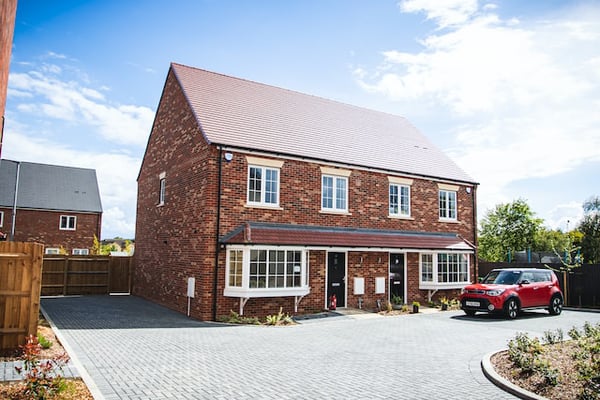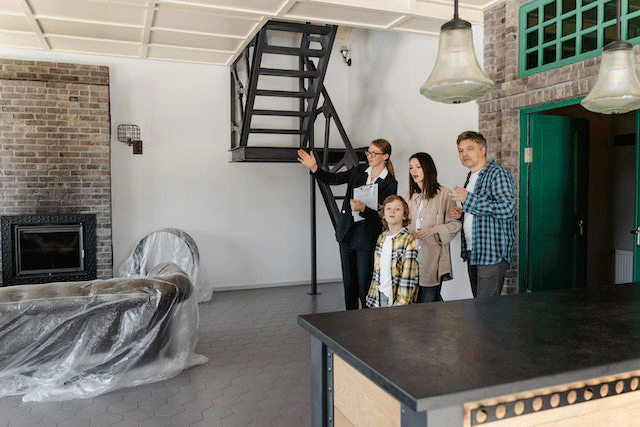
Photo by James Feaver on Unsplash
Thinking about buying a house? Whether it's your first time or you just need a quick reminder our 10 step guide on how to buy a house offers some great tips and advice for all.
10 Steps to buy a house
1. Working out your budget
The number one question when considering any property purchase is how much you can afford.
Before you even broach the subject of a mortgage or begin viewing properties, you need to be realistic about your budget for buying. And that’s not just for the value of the property – don't forget the hidden costs of moving as well. Some of the things to factor into your budget on top of the property price include:
- Home buyers survey
- Mortgage lenders fees
- Stamp Duty
- Conveyancing fees
- Mortgage brokers fees (if applicable)
- Removal charges
2. Finding potential properties.
These days, the internet makes this relatively simple – using websites like Rightmove and Zoopla mean you can stay in control of your search fairly easily, and even get them to do the hard work for you by emailing you every time a property that matches your criteria pops up.
It's also a great idea to contact a few local estate agents to register your interest in properties in their area. They may be able to give you advance notice of properties coming up for sale soon before they are advertised so you can book in early viewings to get ahead of the crowd!.
If it’s a new build you’re after then you might even want to contact a few building companies directly for any information they have on upcoming builds in your area.
3. Getting a mortgage to buy a house.
Time for the 'm' word - Mortgages. If you’re thinking of making an offer or have had one accepted you’ll need to consider financing the purchase.
Most buyers rely on a mortgage to fund their purchase, so you need to know what’s involved from the beginning. Firstly, you need to remember that the golden rule here is to shop around. Mortgage rates change on a daily basis, so lenders will vary what they can offer you accordingly.
You can get a mortgage quote from most banks or buildings societies, or you can opt to go to a mortgage broker, who will do the shopping around on your behalf (usually for a fee, however this might be paid in commission by the lender instead of by you so find out about this upfront).
All lenders will assess you on your income and will run a credit check to make sure you’ve no history of defaulted payments or bankruptcy. You should spend some time prior to this going through your credit files and making sure that everything is in order and you can explain any blips that might have occurred over the last few years.
As credit rating is largely calculated on address, it’s really important at this stage to make sure all accounts in your name are registered to the right one. Assuming all the checks come back okay, they will then offer you what they think you can afford – so be completely honest when you’re making a budget forecast and don’t leave anything off; accepting an offer for a mortgage is one thing, but not being able to pay it back a few months down the line when you realise you’ve miscalculated your budget is a whole other thing entirely.
You don’t have to accept any mortgage offers there and then; like we’ve already said, shopping around is the best option, so once you’ve got two or three offers you can sit down and start comparing. Look at the terms of each – what fees are involved (early repayment/arrangement) how long do they run for, what interest are you paying and are there any special terms and conditions. Then look back at your budget forecast – which of them can you realistically afford to accept once you take into account your day-to-day living expenses? And plan ahead - what would happen, for instance, if you lost your job or the interest rates suddenly shot up?
Once you’ve found one that works for you, you can then secure a Mortgage in Principle from your lender.
You can read some great information about how much you can borrow and some basic mortgage rate calculators in the Mortgage advice pages of MoneySavingExpert.
4. Getting a deposit to buy a house
The type of mortgage you’re given will be calculated not just on your income and credit history, but also how much of a deposit you have in place.
The larger the deposit, the smaller the mortgage (and repayments). But don’t let that put you off if you’ve not got much saved as the government’s Help-to-Buy mortgage scheme means buyers with as little as a 5% deposit can secure mortgages.
5. Picking the right house to buy
Now you’ve got a mortgage in principle, you need view those properties on your shortlist.

Photo by MART PRODUCTION
Viewing the property will flag up all sorts of potential problems or niggles that are easily disguised in pictures – think damp, cracks in ceilings, poor construction, broken fitted appliances and facilities like taps or in-built white goods, stained carpets – the list could go on - check out our guide to What to look for when viewing a house to buy.
Don't forget to check out the area surrounding the house too. Are the neighbouring properties well maintained and in good condition? Is the property located in an area with everything you need? Have you checked crime statistics for the area and league tables for the local schools online? And what do the locals think about where they live? Get as much information about the house and its surroundings as you possibly can to try and build a picture of what it would be like if you were the one living there.
If you're buying a flat rather than a house there might be additional things to consider. This great guide from Saleboards helps you understand what it is to be a leaseholder.
6. Making an offer on the house you want to buy
Once you’ve found the home you want to buy and you’re confident that it’s within budget for your mortgage offer, you can go ahead and make an offer.
Exactly what you offer is entirely up to you – but go too wide of the mark and be prepared to be knocked back by the seller! You can make as many offers as you want until the seller accepts.
At this point, time is of the essence, nothing is official until contracts are exchanged so the seller can still back out (as can you). Getting the process started by appointing your solicitor, and providing documentation they request can show the seller you are serious about buying their house and hopefully stop a potential gazumping situation. If you’re really worried, then you might even want to make your offer on the condition that the seller takes their home off the market.
7. Getting a home buyers survey.
You’ll hear this word a LOT when you’re researching how to buy a house. And that’s because there are several types and more often than not, people confuse one with another.
Where a lot of people tend to get confused is that, when arranging a mortgage, your lender might talk about a survey. What they really mean is a valuation – this is where they send someone to the property to gauge whether it really is worth what the seller is asking for it.
Once you’ve got your mortgage and the valuation has been done then you will want to think about conducting your own survey on the condition of the property (sometimes this can be done in conjunction with the lenders survey). While you’re under no obligation to have one, they reduce the risk of your purchase.
Depending on the type of property you’re buying, you’ll either want to arrange for a full structural survey (for properties over 80 or 90 years old or where you have a concern), an intermediate or ‘house buyers report’ (for newer, more structurally sound properties), or a basic condition report. (an overview of the condition of the property, highlighting areas of major concern, but without extensive detail).
The survey will highlight any major structural problems the property might have now or is likely to have within the next few years. The results of your survey will determine whether you a) go ahead with sale as is, b) negotiate with the seller over the price of the house if there is clear evidence that minor work needs to be done or c) drop out of the sale completely if major structural problems are detected. Your mortgage provider may request further surveys if they have a particular concern about something affecting the value of the property before approving your loan.
8. Legal services for buying a house - Conveyancing
Because the sale of the house isn’t officially complete until the contracts have been exchanged, it’s really important that you have a good legal team to help you.
This part of the process is called conveyancing and your conveyancer’s (specialist property lawyer) job is to work on your behalf to prepare all the legal paperwork, conduct all Land Registry and local council searches, draft up the contracts and handle all money exchanged relating to the buying and selling of your property.
The costs of this can range so make sure that you shop around and are happy with the service you’re being offered.
Once you’re confident that you will be proceeding with the purchase and are happy with the searches and survey results it’s a good time to get in touch with a house removals company to arrange removals services. You won’t be able to give them an exact moving date yet but giving yourself 3-4 weeks to make these arrangements mean time to find the right company and one that has availability for your move date (particularly in busy periods like the summer or school holidays).
9. Exchanging Contracts.
Once all survey reports are back and you’re happy with the legal preparations your conveyancer has made, you can then proceed to exchange contracts. The exchange of contracts really is as simple as it sounds – both you and the seller sign your contracts and exchange them, at which point a completion date for the sale will have been agreed between you both.
Once you know your completion date don’t forget to confirm your dates for removals and services with your removal company and if you’re doing your own packing now is time to get started!
10. Completion of house purchase.
Once you’ve exchanged the next and final stage is to complete the sale, usually there is a time period between exchange and completion but sometimes it can be done on the same day.
On the day of completion your mortgage lender will release the money for the sale and your solicitor or conveyancer will receive the deeds to the property. The seller must then vacate the property at a time agreed by you both and you can then arrange for your move into the house.
For further advice on how to buy a house, see www.moneysavingexpert.com/mortgages/house-buying-guide

.png)










